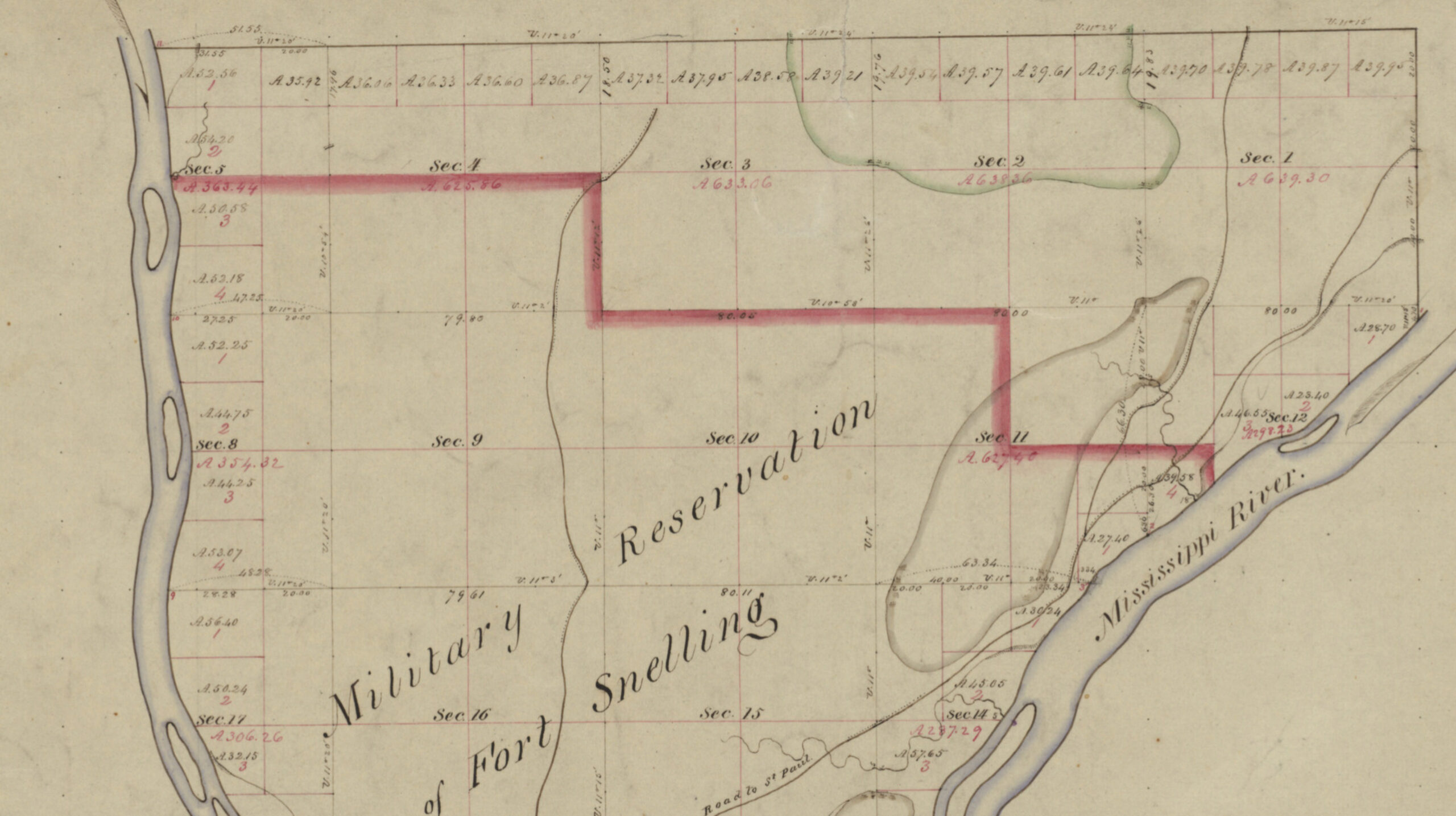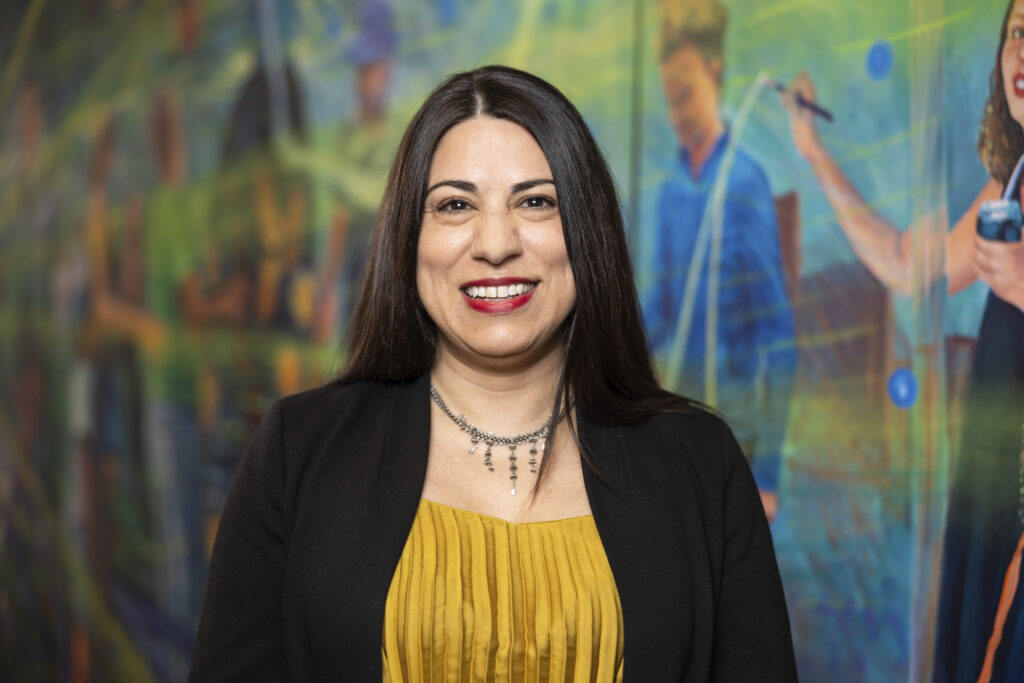During the academic year 2023-24, the College of Arts and Sciences at the University of St. Thomas. is sponsoring a series of four on-campus events and two off-campus visits to sacred sites to learn more about Indigenous communities in Minnesota and the history of relations between especially the Dakota people and the Catholic Church. The events are a continuation of last year’s efforts to overcome polarization by learning nonviolent or compassionate modes of communication, and to put those skills into practice by engaging in difficult conversations.
The first event was held on Oct. 11, when more than 100 faculty, staff and students attended a conversation with Rev. Jim Bear Jacobs, director of racial justice for the Minnesota Council of Churches, moderated by Dr. Yohuru Williams, Distinguished University Chair and professor of history and founding director of the Racial Justice Initiative.
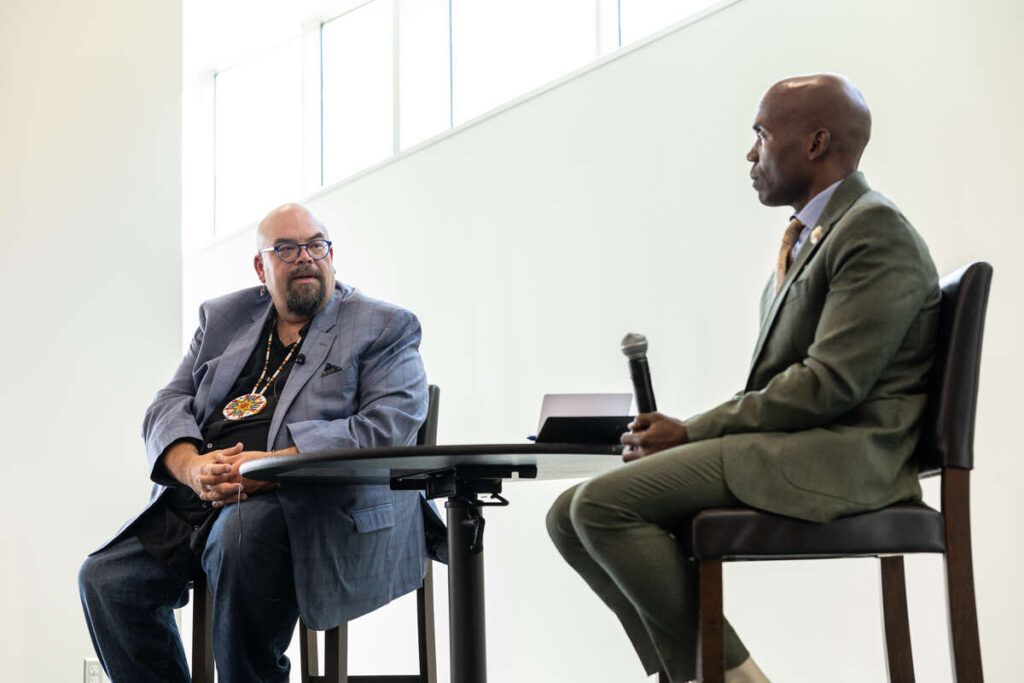
Jim Bear, as he likes to be called, presented texts from the Catholic tradition which together are considered to constitute the Doctrine of Discovery, a set of teachings that enabled the Catholic Church to justify the colonization of lands stewarded by Indigenous peoples – not only in the Americas but around the world. Although the teachings were repudiated by Pope Francis earlier this year, they have long been ensconced in U.S. codes of law and continue to be cited in legal arguments to this day. After offering a summary of the doctrine and giving examples of its historic application, Jim Bear challenged the St. Thomas community with these poignant words:
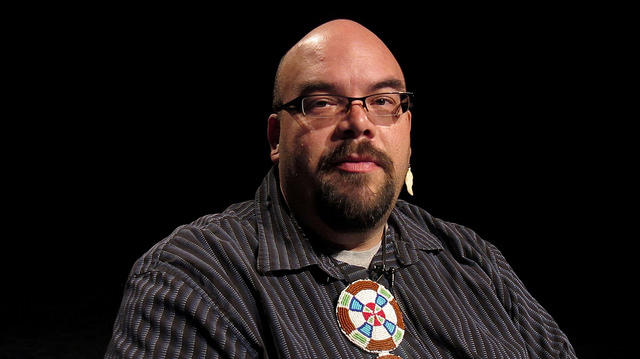
“To paraphrase Catholic theologian Jim Keenan, sin doesn’t happen only when we are weak and struggling; the greater sin is when we are strong and can’t be bothered. St Thomas students, staff and faculty: Look around you. You are powerful, and now you know. This is not the time to turn your head and be apathetic. This is the time to make a stand. This is the time to actually do the work we are called to do as followers of Christ. This is an invitation into vulnerability. This is an invitation into risk.”
On Oct. 14, 20 faculty, staff and students accompanied Jim Bear to three sites sacred or significant in Indigenous history – lands near Bdote, the place where two rivers meet and where Dakota history is believed to have originated. “As a lifelong Minnesotan, I was surprised to learn how little I knew about these sacred sites that I have passed many times, but never visited,” explained Dr. Terry Langan, associate professor of economics. “After three hours with Jim Bear Jacobs, I will never think about this land and its Indigenous people again without remembering his stories.”
Dr. Cara Anthony, professor of theology, was moved by the experience as well.
“Jim Bear Jacobs invites listeners to become part of the stories of the Dakota and other Indigenous people of this region,” she said. “He calls people to empathy and witness, and he inspires me to work for truth, accountability, and healed relationships.”
rev. jim bear jacobsThis is an invitation into vulnerability. This is an invitation into risk.”
In order to plan the series, Dr. Kimberly Vrudny, one of the associate deans in the College of Arts and Sciences, has been consulting with a group of about 20 faculty, staff and students from around the university. The group is committed to helping the St. Thomas community learn the truth and, to the extent that it is possible, working together to repair the harm that has been done to Indigenous peoples in the region.
“When I was the director of community engagement, I hoped for our campus to become more engaged with Indigenous people through partnerships with community organizations. Some of our faculty – including notably Mike Klein (Justice and Society Studies) and Stewart James-Lexártzegi (Film Studies) – have engaged in this work with a lot of intention and integrity,” Vrudny said.
“Relationship building is key in this work. I am grateful for the partnership we have been able to establish with Rev. Jim Bear, as he engages with our community first around truth-telling – one of the commitments we have made in our land acknowledgment. We are uncertain where it will all lead, but are hopeful that, together, we will begin to address the harms of the past and to leave a different legacy for those who work, study and live here in decades to come.”
The series continued Nov. 14 when Jessica Intermill, a land history consultant with over 15 years of experience as a treaty rights and tribal law attorney, spoke at O’Shaughnessy Educational Center auditorium.
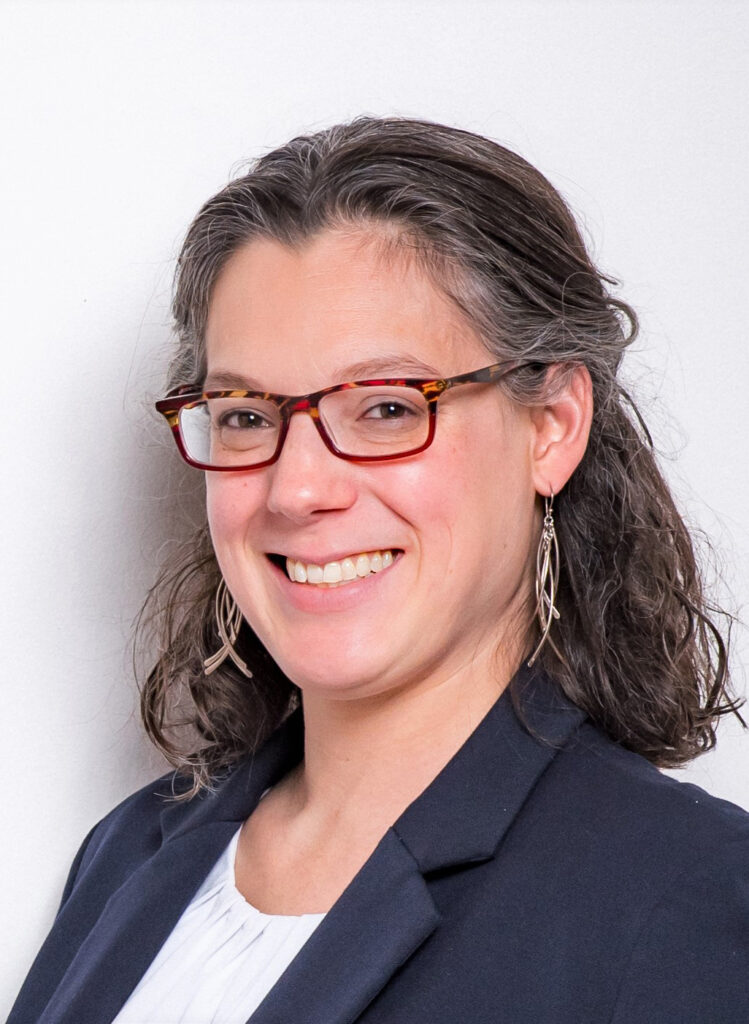
Intermill has helped individuals and organizations look underneath their homes, schools, businesses and congregations to understand the circumstances that form the history of the land they stand on. In her presentation, Intermill detailed the history of the land transfer that gave the land for the St. Paul campus to the University of St. Thomas. The land went from the Dakota people to the U.S. government (depicted in the map above) to William Finn to Archbishop John Ireland.
“All of this history, all of those places exist here now. Now is always,” Intermill shared. “And, if now is always, that also means that as we stand here today, we have a foot in tomorrow.
“Just as these guys made their choices and impacted our experience today, we get to make choices. We decide how we want to be in this world, how we want to steward a past that is not past, to move forward into our shared future.”
Associate Professor and Chair of the Department of Justice and Society Studies Mike Klein was among those in attendance at Intermill’s talk. When the audience was asked to reflect on their own family histories, Klein shared his experience of learning the truth behind family lore.
“I found out three years ago that one of my ancestors was in Sibley’s genocidal campaign to exterminate or remove the Dakota from Minnesota. My family told that story at Thanksgiving, but in a sanitized, whitewashed version,” Klein said. “When I finally did actual research to find out what the story was, it was a new awareness. And it’s not just guilt and shame, it’s responsibility, it’s possibility. It helps me orient myself toward the work I can do with Dakota communities now.”
In closing, Intermill acknowledged that information like this can be overwhelming, and the idea that there is a way to repair these wounds can seem almost impossible to grasp.
jessica intermillYou don’t have to fix it. Nobody’s going to fix this all by themselves. Just do the next right thing.”
The Indigenous Relations series will continue in the spring, when the St. Thomas community will learn more about Catholic boarding schools (planned for March 5) and ultimately have a conversation about how people in situations like that of the St. Thomas community are thinking about reparations (planned for April 16). A second opportunity for St. Thomas staff and faculty to join Jim Bear at sacred sites is planned for Saturday, May 4.
